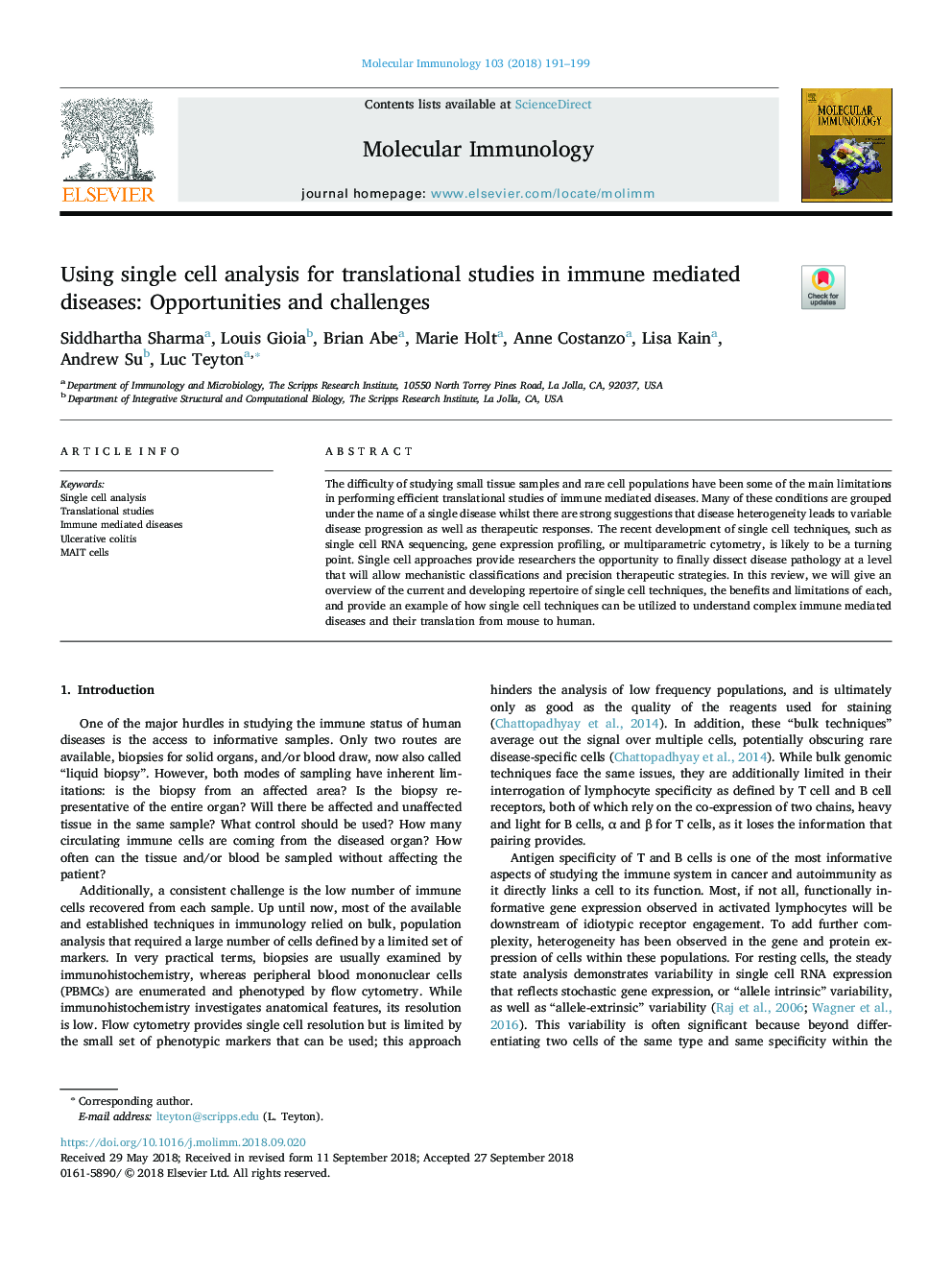| Article ID | Journal | Published Year | Pages | File Type |
|---|---|---|---|---|
| 11030693 | Molecular Immunology | 2018 | 9 Pages |
Abstract
The difficulty of studying small tissue samples and rare cell populations have been some of the main limitations in performing efficient translational studies of immune mediated diseases. Many of these conditions are grouped under the name of a single disease whilst there are strong suggestions that disease heterogeneity leads to variable disease progression as well as therapeutic responses. The recent development of single cell techniques, such as single cell RNA sequencing, gene expression profiling, or multiparametric cytometry, is likely to be a turning point. Single cell approaches provide researchers the opportunity to finally dissect disease pathology at a level that will allow mechanistic classifications and precision therapeutic strategies. In this review, we will give an overview of the current and developing repertoire of single cell techniques, the benefits and limitations of each, and provide an example of how single cell techniques can be utilized to understand complex immune mediated diseases and their translation from mouse to human.
Related Topics
Life Sciences
Biochemistry, Genetics and Molecular Biology
Molecular Biology
Authors
Siddhartha Sharma, Louis Gioia, Brian Abe, Marie Holt, Anne Costanzo, Lisa Kain, Andrew Su, Luc Teyton,
